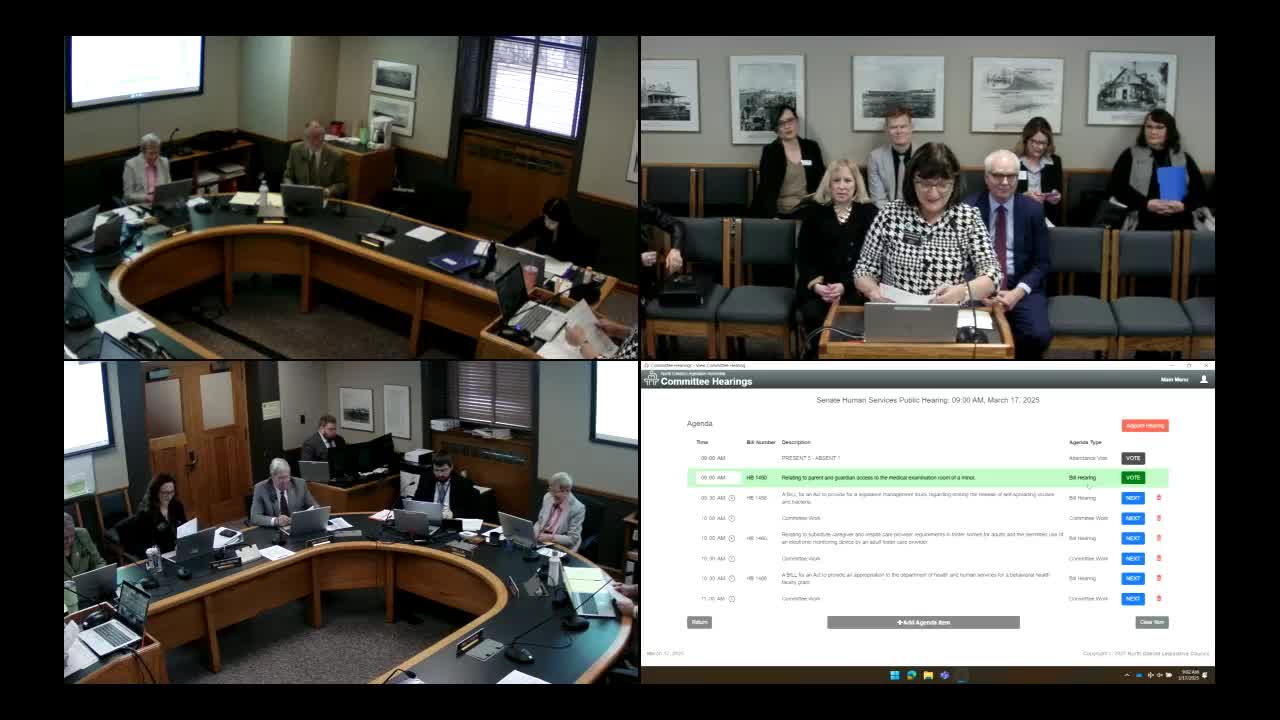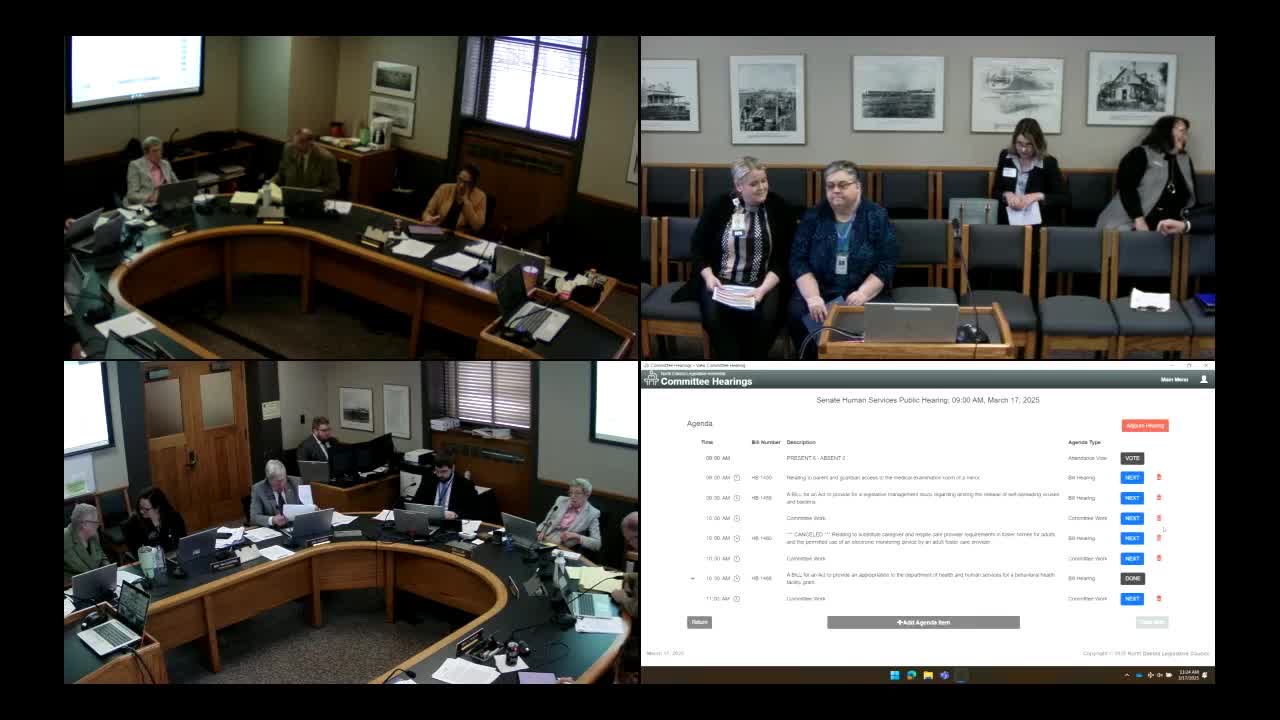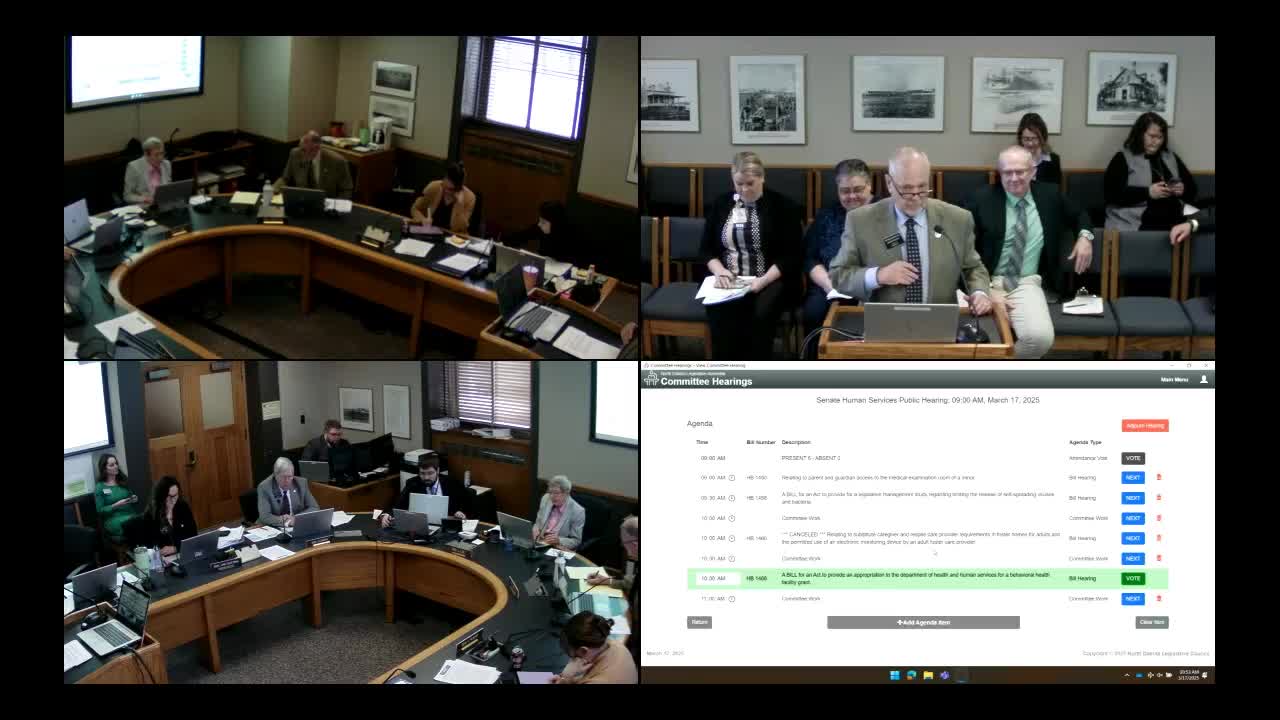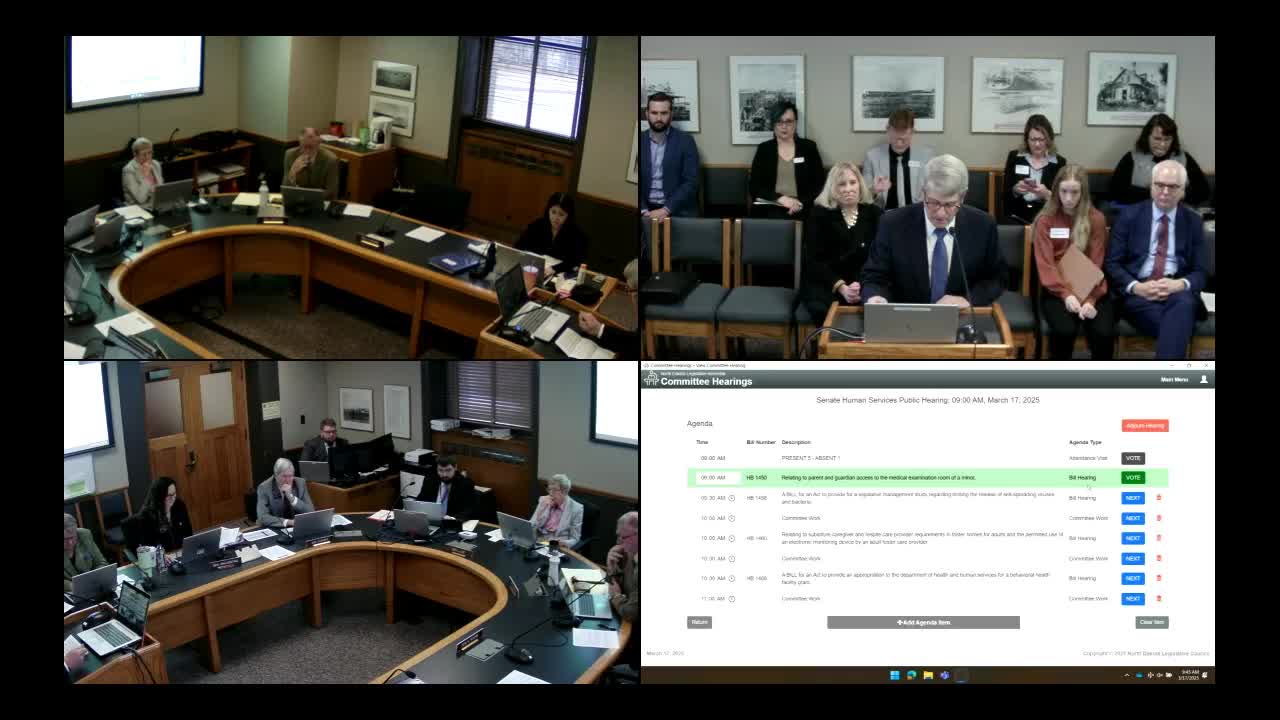Article not found
This article is no longer available. But don't worry—we've gathered other articles that discuss the same topic.

Senate Human Services hears bill to guarantee parent access to minor’s medical exam room

Senate Human Services committee raises personal‑needs allowance for long‑term residents to $150 and advances bill

Senate Human Services committee advances $16 million grant proposal to expand inpatient behavioral‑health beds in Bismarck

